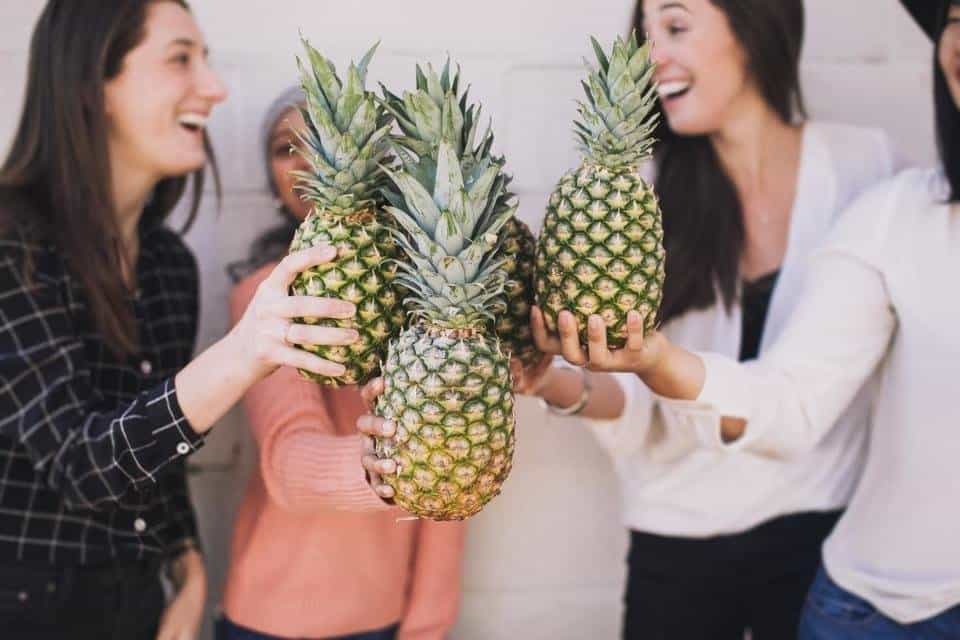In an opinionated world, the conversation surrounding food and gender is openly voiced. One of our readers is exploring this correlation, dissecting her own body’s health while investigating society’s negative food stigma towards women.
I have struggled with my weight since I was a child. Even at a young age, my stomach packed on bloat in a round balloon-shape, similar to the looks of pregnancy. I had consistent bouts of candida, which was in result of consuming excess amounts of carbohydrates, taking the shape of thick white coating across the tongue. I can still recall the invasive feeling as I received an internal pelvic ultrasound, the doctor applying pressure to my lower abdomen. It was found that between my two ovaries I had over 70 cysts, represented as small, scattered shadows on the monitor in front of me. I was diagnosed with Polycystic Ovarian Syndrome (PCOS) three years ago at the age of 20, an endocrinological disorder caused by an increase of androgens in the body. While PCOS varies from woman-to-woman, its hormonal imbalance significantly affects your insulin and metabolism. Additionally, other external and internal symptoms can occur such as infertility, depression, acne, and particularly, weight gain.
PCOS was a major contributor to my lifelong symptoms. Throughout my childhood and teenage years, there was discomfort discussing my health. Family members never commented on my eating habits, though jokes lingered throughout spaces. Now, older and aware of my personal relationship with food, I understand the discomfort behind discussing my health was because of my gender.
Women and food are often seen in contrasting lights. Our physical shapes represented on a society-fueled spectrum, endlessly shifting between negative and positive connotation. Food, more times than not, is skewed to be its relentless dictator. In the media, companies use advertising campaigns to dictate unrealistic body types, which manipulates how women view food consumption.
External forces continually try to control how women feel about themselves — for simply looking like themselves. Women are continually oppressed by their right to eat, their need to receive nutrition, yet are rarely given a chance to disclose their own truth. It’s blatantly wrong.
Finding Pineapple Collaborative
In December, I spent an evening surrounded by female-identifying peers who willingly discussed perceptions around food, females & their health, and how that contributes to feeling worthy. We openly debated and respectfully listened to the specific issues others have shied away or heedlessly spoke upon.
I welcome you: Pineapple Collaborative, a physical and digital female food-focused community of over 60,000 members. When I discovered their New York event, “New Year, Same You,” was taking place in Manhattan, I jumped at the chance to attend.
That December night, I saw Pineapple Collaborative create a safe space where women could unravel their life experiences while learning from others. It allowed for healthy relationships to form while acknowledging and discussing female food and health — and for once, their real correlation.
Emi Boscamp, one of Pineapple NY’s leads, said Pineapple Collaborative holds these events so that people will “stay and learn something. To be happy and decompress, while making new connections.”
“I want people to think and enjoy themselves,” Boscamp said. “You’re not hearing one opinion reinforced. We want people to be able to talk and challenge new ideas.”
“New Year, Same You,” Pineapple NY’s Dec event, explored women’s resolutions and intentions set as they entered into 2019. Moderating the event was Maggie Battista, writer and founder of Eat Boutique, a recipe site dedicated to innovative ways to look at food. Battista is also the author of “A New Way to Food,” which released last month. Panelists included Ysanet Batista, founder of Woke Foods, a cooperative that explores healing through Dominican cooking, Jennifer Sterling, a holistic nutritionist actively removing emotional connotation surrounding food, and Rachelle Robinett, founder of Supernatural, a herbal company featuring plant-based remedies and health coaching.

Exploring practical food tips with Rachelle Robinett:
Days later, I entered Supernatural, Robinett’s café and company located in the Woom Center on Bowery St. in Manhattan. The bright-eyed herbalist welcomed me in with a smile, sounds of chatter filled the space behind her, creating a harmonious tune.
“We’re having a sound journey later today,” she said, laughing.
Robinett is a holistic health practitioner with certification in Complementary and Integrative Health. Inside Supernatural, Robinett offers 1-1 wellness consulting, workshops, and health coaching for her clients — as well a fully-stocked menu of superfood products and health remedies such as tonics, teas, and calming herbal chews.
Curious to learn about Robinett’s relationship with wellness, I sat down with Supernatural’s founder to discuss how she has cultivated a space where food heals, uplifts, and strengthens the human body — and willingly talks about it. I hoped through learning about her experience, I could better understand my own body’s health.
At “New Year, Same You,” the panelists discussed a wide range of topics within the month’s designated theme — resolutions and intentions — particularly, how their idea of health was connected to more than food itself.
Below, check out a recipe for one of Robinett’s favorite smoothies labeled “Save Yourself Deep Green Smoothie,” loaded with lots of fresh greens, which Robinett totes as “food medicine at its finest.”
Rachelle Robinett is available for 1-on-1 wellness consulting at CAP Beauty on Thursdays. Rachelle also recently announced that Supernatural will be moving to a new location in Brooklyn, NY, expected May 2019.
This one is serious business.
https://rachellerobinett.com/read/2014/10/08/save-yourself-deep-green-smoothie?rq=smoothie)
Juice: Celery Cucumber Collard Greens Spinach Lime Ginger
Blend with: Milk Thistle (powdered herb) Bee pollen Chlorella powder
Don’t be dismayed when it blends into a beautiful shade of… grey. Because it will.










2 Comments
Pingback: Let’s Give ‘Em One thing to Speak About: Ladies & Meals – fooshya
Pingback: Let’s Give ‘Em Something to Talk About: Women & Food – The Red Hook Star-Revue – Human Health